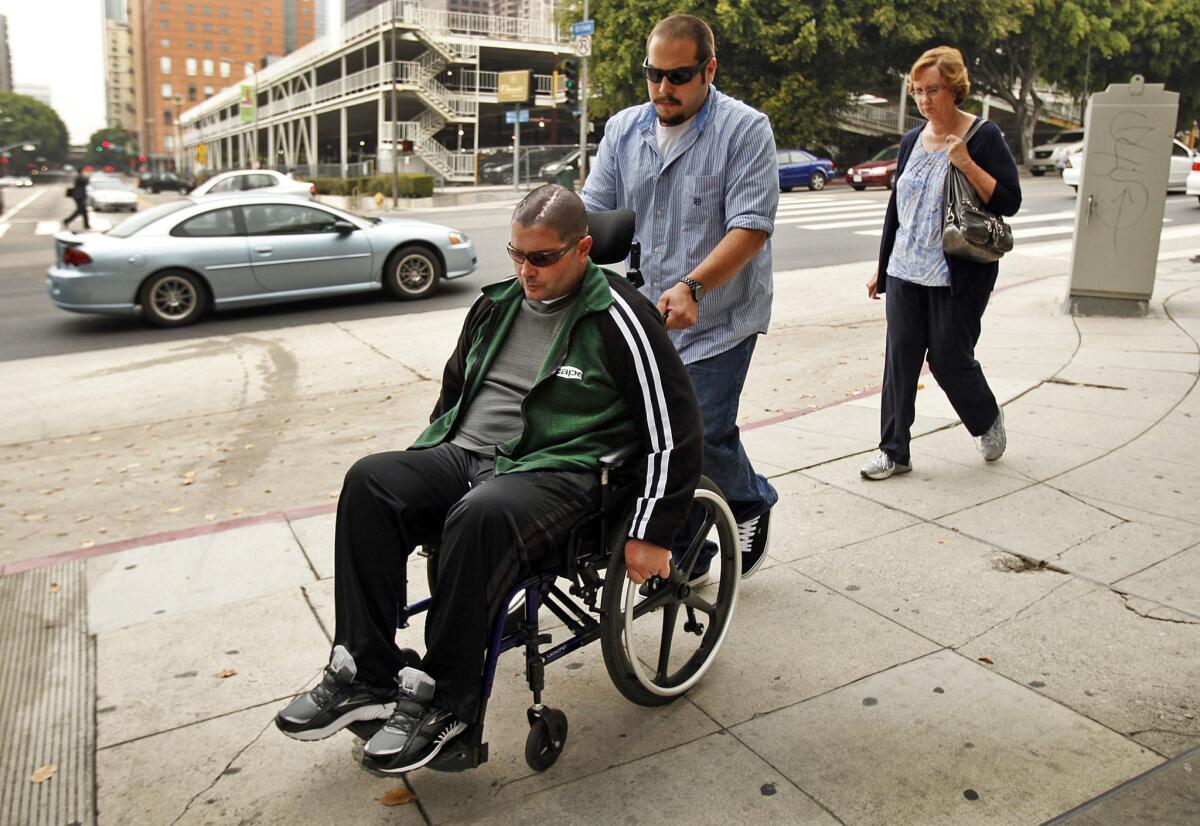Bryan Stow’s life expectancy a point of contention during civil trial

Injuries suffered during a beating outside Dodger Stadium have cut Bryan Stow’s life expectancy by 10 years, an expert witness retained by attorneys for the Los Angeles Dodgers estimated Monday.
Stow’s life expectancy is a central issue during the trial. If the Dodgers and former owner Frank McCourt are found liable for the beating Stow suffered, a jury will have to decide how much money to award in damages based on, among other factors, how many years of medical care Stow has in front of him.
Doctors retained by Stow’s attorneys have previously asserted during the ongoing civil trial that Stow’s life expectancy has dropped two to five years.
That estimate was challenged Monday by Robert Shavelle, technical director of the Life Expectancy Project. He said Stow, now 45, would likely live about 23 more years. He said he based his calculation on scientific literature about people who have traumatic brain injuries similar to Stow’s and accounted for the complications Stow has suffered.
An average 45-year-old male could expect to live 33 more years until the age of 78, based on actuarial tables from the Social Security Administration.
On cross-examination, an attorney for Stow and his family cast doubts on Shavelle’s methodology, saying it did not account for how active a lifestyle Stow, a former paramedic, lived.
“You have no clue as to what Mr. Stow did in terms of energy for his job,” Thomas Girardi told Shavelle. “Did you have a table that said I’m going to take a look at paramedics who have this rigorous job and come up with this conclusion?”
Shavelle said it would be impossible to give a calculation for a specific person.
“Many people suffer traumatic brain injuries as a result of an active lifestyle,” Shavelle added.
Girardi pointed out that Shavelle’s testimony went against four physicians who testified earlier.
During other testimony Monday, a forensic pharmacologist testified that Stow likely had a blood alcohol level between 0.16% and 0.20% around the time of the beating after the Dodgers’ Opening Day game in 2011.
Vina Spiehler, a defense witness, said she calculated her estimate based on Stow’s recorded blood level of 0.149 taken at Los Angeles County-USC Medical Center two hours after the beating.
Stow and his friends had taken a taxi to the stadium. On the way back, they passed up one taxi and continued to walk through the parking lot.
Twitter: @ryanvmenezes
More to Read
Start your day right
Sign up for Essential California for news, features and recommendations from the L.A. Times and beyond in your inbox six days a week.
You may occasionally receive promotional content from the Los Angeles Times.







